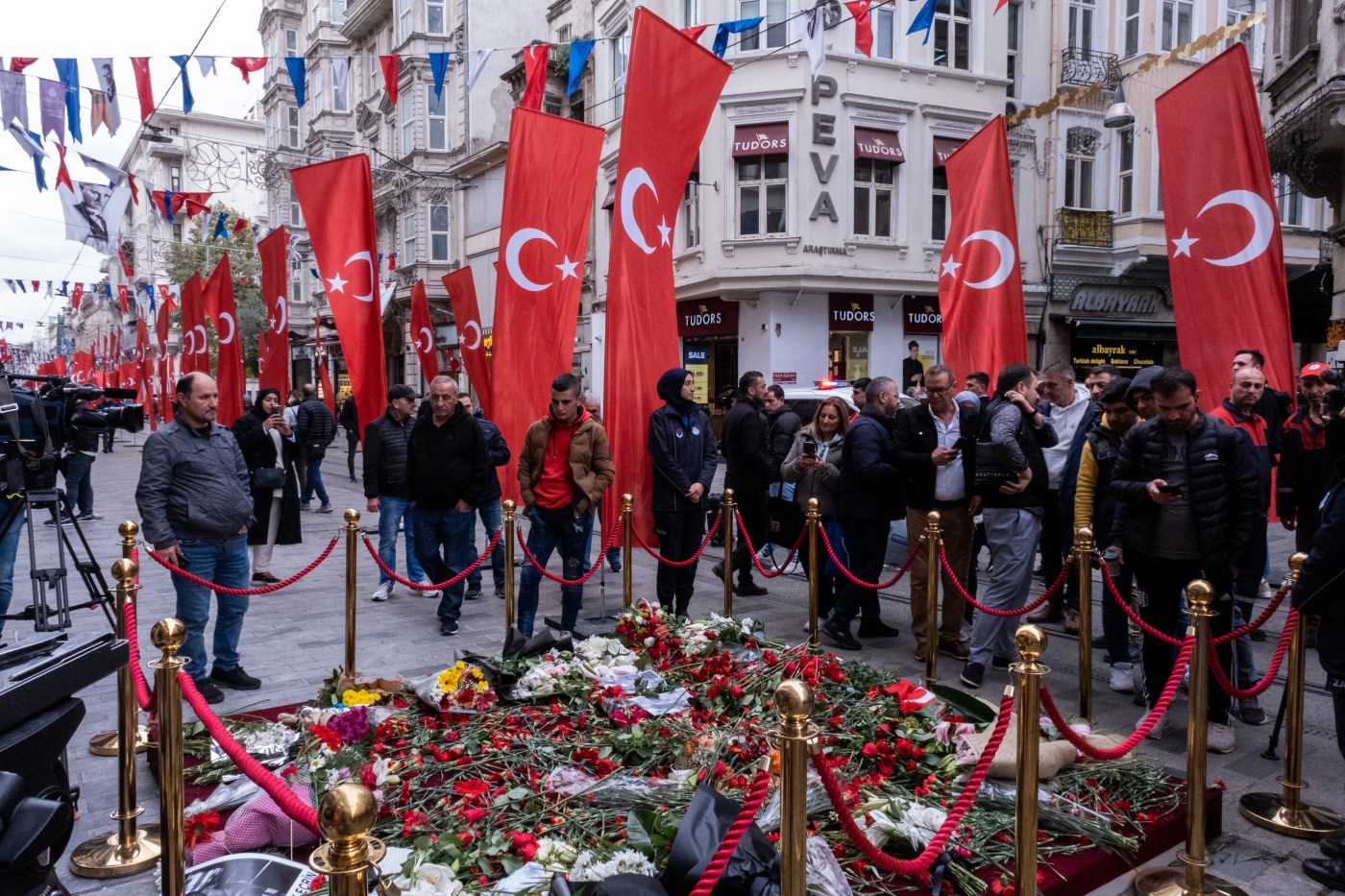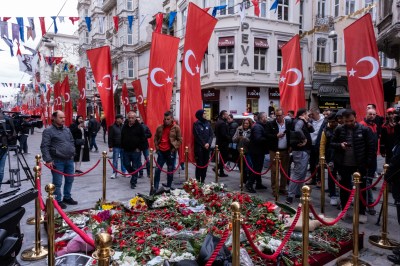ISTANBUL—Less than a day after an explosion killed six people and injured dozens more in Turkey’s largest city, police apprehended a 23-year-old Syrian woman and identified her as the suspected attacker. Authorities said she confessed carrying out the bombing on behalf of Turkey’s longtime adversary, the Kurdistan Workers Party (PKK).
Turkish authorities detained at least 50 others in connection to the bombing, according to local media, though details are sparse. But many Turkish officials quickly directed their ire at a third party: the United States. And the alleged terrorist’s attire, a sweater that said New York, in a photo published by authorities struck a nerve.
Ankara has long accused Washington of overlooking or supporting terrorism through its partnership with Kurdish groups in Syria. Turkey considers such elements one and the same as the PKK, which has carried out attacks on Turkish soil in the past but denies involvement in the latest.
Turkish Interior Minister Suleyman Soylu claimed Monday that the attack had been directed from Kobani—a Syrian city under the control of the U.S.-backed People’s Protection Units (YPG). While the U.S. has designated the PKK a terrorist group, it began collaborating with the YPG during the fight against Islamic State in Syria. American officials told their Turkish counterparts the relationship was temporary, but the Biden administration’s 2023 defense budget request includes $184 million to Syrian people and organizations, which include the YPG.
“Since the defeat of ISIS, the Turkish policy has been that the U.S. should not turn this relationship with the YPG from a temporary one into an open-ended commitment, which is where it looks like its heading,” Dr. Soner Cagaptay, a Turkey analyst at the Washington Institute, said in an interview. “The fact that this is linked to the PKK/YPG family is troublesome for the U.S.-Turkish relationship.”
The U.S. embassy in Turkey quickly tweeted that it was “deeply saddened” by Sunday’s bombing while White House press secretary Karine Jean-Pierre said the U.S. stood “shoulder-to-shoulder” with its NATO ally in the fight against terrorism. Soylu responded such statements were akin to “the murderer arriving as one of the first at the scene of the crime.” On Monday a spokesman for Turkish President Recep Tayyip Erdogan called on foreign countries to “immediately cease their direct and indirect support if they want Turkey’s friendship.”
The Turkish president and his ministers have long used U.S. support for Syrian Kurds to stir up anti-American sentiment at home, despite the fact that both countries are bound to defend each other through their membership in NATO.
Erdogan said over the summer that the U.S. and its regional partners “feed terrorism” in the Middle East. “They did it brutally and they still do it. They did not get tired of it,” he continued. At a NATO summit last year, Erdogan presented Biden with a book, Turkey’s Fight Against Terrorism. Official government outfits and Turkish media widely reported the detail.
The most recent bombing in Istanbul has recalled memories of 2015-17, when a wave of terror by armed Kurdish groups and the Islamic State targeted Turkey and its largest city. Some 130 people died during bombings throughout Istanbul.
There have long been tensions between officials in Washington and Ankara—from Erdogan’s flirtations with Russian President Vladimir Putin to Turkey’s brinksmanship with fellow NATO ally Greece—but terrorism on Turkish soil is a particular sore spot. If Sunday’s attack marks the beginning of another bombing campaign, it could damage the bilateral relationship at a critical time.
Growing rifts would undermine Erdogan’s ability to mediate between Ukraine, Russia and the West. And any major incursions into northern Syria to counter Kurdish militants would require assent from Putin, a rare opportunity for the Russian strongman to gain more influence abroad since his invasion of Ukraine.
“If this is a one-off, I think Ankara and Washington can probably contain it,” Cagaptay said. “If there are other attacks, this could be really troublesome.”







Please note that we at The Dispatch hold ourselves, our work, and our commenters to a higher standard than other places on the internet. We welcome comments that foster genuine debate or discussion—including comments critical of us or our work—but responses that include ad hominem attacks on fellow Dispatch members or are intended to stoke fear and anger may be moderated.
With your membership, you only have the ability to comment on The Morning Dispatch articles. Consider upgrading to join the conversation everywhere.